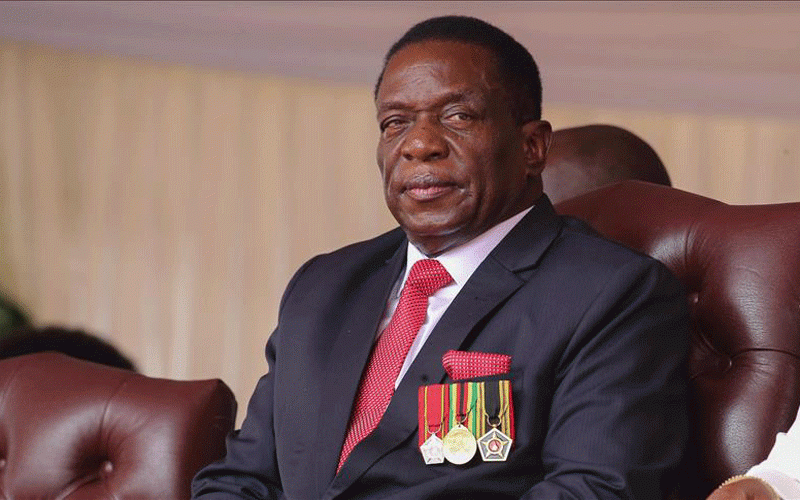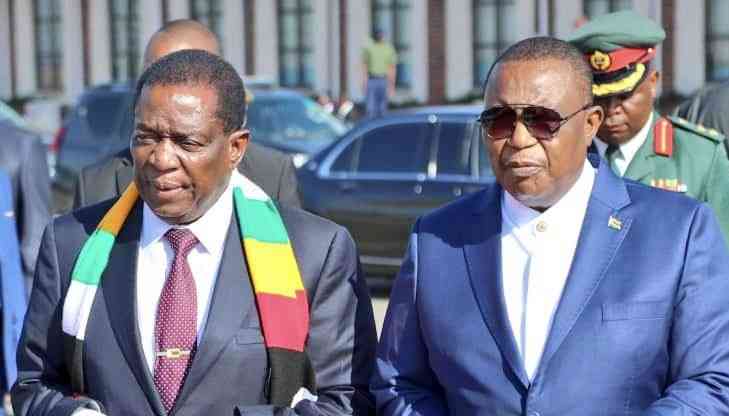
Imagine President Emmerson Mnangagwa and opposition leader Nelson Chamisa embarking on an international campaign against sanctions. That move alone would be a sign of political maturity and patriotism and would contribute to national common purpose and unity. But to do so the two would need to agree on what sanctions mean to Zimbabwe. This kind of consensus will not happen any time soon because they have both weaponised the sanctions for political gain.
Many in the opposition, including Chamisa himself, argue insincerely that all sanctions are targeted and have no effect on the man on the street. Their view is that sanctions are a fitting punishment for those in the ruling party who have played a big role in Zimbabwe’s worsening misfortunes.
They purposefully ignore what scholars have long unveiled, namely that sanctions are a form of warfare — Fourth Generation warfare. (See Nicholas Mulder: “The Economic Weapon: The Rise of Sanctions as a Tool of Modern War). According to Mulder, sanctions are intended to cut “off a country from all access to the international economy and wait for it to exhaust itself or succumb to political revolution or social collapse.”
He further postulates: “Economic sanctions have long been considered a nonviolent deterrent, but ironically they have become a tool of modern warfare.”
Chamisa is overly aware of this lethal effect of sanctions on Zimbabwe but because he sees them as a weapon to fight his way to State power, fat chance that he can team up with Mnangagwa to fight for their removal.
Mnangagwa, on the other hand, sees some benefit in the sanctions which he has made a tool for social control and to manipulate the status quo to keep his grip on the levers of power. He and those in his government argue rightly, but disingenuously of course, that the sanctions are illegal and evil and must be removed.
Indeed, sanctions bar banks from doing business with the targeted country. They hit the importation of food and medicines, causing immense suffering and even death among the poor. This is good for those who wish to perpetuate their stranglehold on power as they have singular control of the distribution of humanitarian aid such as food and agricultural inputs which make them considered saviours by the poor who are the majority voters.
Those in the opposition are vying for the same voters; hence they continue to harp at government failures which they attribute to everything else except sanctions. They cite corruption as the sole cause of the country’s malaise.
- Backlash over ZEC’s huge 2023 poll fees
- Yadah finish Chibuku Cup on a high
- Yadah finish Chibuku Cup on a high
- Backlash over ZEC’s huge 2023 poll fees
Keep Reading
Both the establishment and the opposition tend to ignore the correlation between sanctions, human rights and corruption. According to scholars, as the poor suffer, the rich become richer. The country suffers deep corruption and incompetence as those who oversee the economy become more and more depraved and repressive. Sanctions, therefore, empower the institutions that control the levers of illicit trade at the expense of those engaged in legitimate professions.
Whichever way you look at it, sanctions benefit the elite across the political divide.
High-level corruption is a tax on the already overburdened taxpayer. Apart from taking from the poor and giving to the political elite and politically connected, high-level corruption has created a subculture of corruption everywhere. Corruption is a national cancer that is crippling provision of basic services to the poor and marginalised and must be decisively dealt with.
We need not be told by foreigners to respect our Constitution and create a level political playing field that would see our elections reflect the genuine choices of the people. Our government, and not civil society and foreigners, should be in the forefront of promoting a human rights culture in all its dealings with the public.
The targeted US sanctions are having a devastating effect on business and the man in the street. BancABC CEO Lance Mambondiani detailed the impact of sanctions on Zimbabwe on In Conversation With Trevor a year ago. First Capital Bank managing director Ciaran McSharry also outlined the impact of US sanctions here. Banks and their clients are hurting and the cumulative impact is the high cost of money and hesitancy to deal with the country from a number of international companies.
All those politicians who genuinely love this country should deal with the stumbling blocks in the way to the removal of sanctions. All patriots should join hands in demanding that sanctions be lifted and normalisation of relations with the entire international community commence. Sanctions, human rights abuses and corruption are all objectionable. Period!!
Trevor Ncube is Alpha Media Holdings chairman








